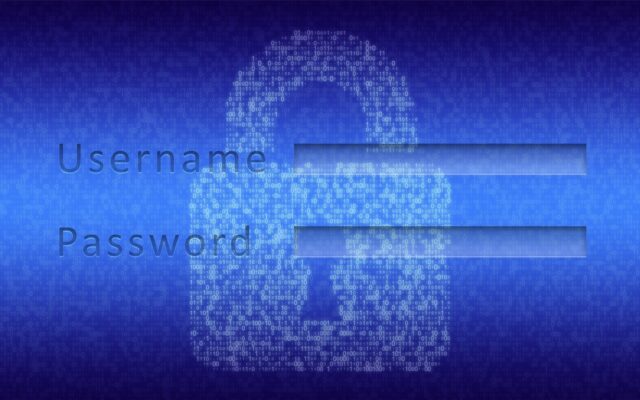In the ever-evolving landscape of digital existence, where the shadows of cyber threats loom larger each day, the sanctity of our online lives hinges upon a fundamental yet often overlooked pillar–password security. The act of establishing robust password guidelines is not merely a task to be checked off a list but a crucial step toward ensuring safety in an interconnected world. With every keystroke, individuals and organizations alike are called to embrace stringent standards that fortify their defenses against the relentless tides of malicious intent.
As we navigate through this intricate dance of technology and vulnerability, the importance of adopting strong password practices cannot be overstated. It is through the enforcement of these guidelines that we lay the groundwork for improved security. Each element of a password policy serves as a brick in the wall of protection we build around our most sensitive information. By implementing measures that prioritize complexity and uniqueness, we create barriers that dissuade even the most determined adversaries.
Indeed, the journey toward increased security is paved with mindful actions and deliberate choices. Establishing secure password practices requires us to reflect on our habits and attitudes towards digital safety. It calls for an unwavering commitment to uphold these standards not just as mere suggestions, but as vital components of our daily routines. In doing so, we not only safeguard ourselves but also contribute to a broader culture of security awareness that can ripple through communities and organizations alike.
In this exploration, we will delve deeper into the nuances of implementing strong password policies, examining how enforcing robust guidelines can lead to enhanced safety for all. Together, let us embark on this path toward greater protection, armed with knowledge and a shared resolve to secure our digital futures.
The Importance of Strong Password Policies
In the ever-evolving landscape of digital security, the significance of strong password policies cannot be overstated. As we navigate through this intricate world of financial transactions and cryptocurrencies, the need for secure practices becomes paramount. Establishing robust guidelines not only protects individual accounts but also fortifies the entire ecosystem against potential breaches. Each password serves as a gatekeeper, a silent guardian standing watch over sensitive information, and it is our responsibility to ensure that these guardians are equipped with the necessary strength to fend off intruders.
Implementing stringent password standards is an essential step toward improved safety. Organizations must adopt comprehensive strategies that go beyond mere recommendations; they must enforce practices that require users to create complex passwords, incorporating a blend of letters, numbers, and symbols. This proactive approach ensures that passwords remain difficult to decipher, thus enhancing protection for both personal and corporate assets. The act of enforcing these standards acts as a bulwark against the tide of cyber threats that loom ominously in the background.
For many, the process of establishing secure password practices may seem cumbersome, yet it is a small price to pay for increased security. Simple measures, such as regular updates and the use of unique passwords across different platforms, can significantly mitigate risks. By fostering a culture that prioritizes password integrity, organizations empower their users to take charge of their digital safety. It is a collective effort that demands attention and diligence but promises substantial rewards in terms of trust and reliability.
As we explore the nuances of adopting strong password policies, it becomes clear that this is not merely a technical adjustment but also a cultural shift within organizations. Emphasizing the importance of password security should be woven into the fabric of training programs and awareness campaigns. When individuals understand the potential consequences of weak passwords–data breaches, financial loss, and identity theft–they are more likely to embrace robust practices with enthusiasm.
In conclusion, the journey toward enhanced security through strong password policies is one that requires commitment and foresight. By implementing rigorous guidelines and fostering an environment where safety is prioritized, we lay down the foundations for a more secure digital future. It is an endeavor marked by care and precision, where every character in a password holds the power to protect or expose. Thus, let us tread carefully in this domain, ensuring that our defenses are as resilient as they are vigilant.
Key Elements of Effective Password Policies
In the ever-evolving landscape of digital security, the establishment of stringent password policies emerges as a cornerstone for protecting sensitive information. These guidelines serve not merely as recommendations, but as robust standards that dictate the very essence of our security practices. Enforcing these policies is not a task to be taken lightly; it requires dedication and an understanding of human behavior. The creation of strong passwords, rich in complexity and variability, acts as a first line of defense against those who would seek to invade our privacy.
Implementing effective password guidelines involves a comprehensive approach that considers both technology and user habits. It is essential to foster a culture of increased awareness surrounding the importance of password security. By educating individuals on the practices that underpin robust password creation, organizations can ensure that employees are equipped to navigate the complexities of digital safety. This education should extend beyond mere compliance; it should ignite a sense of ownership over one’s digital footprint, encouraging proactive measures that enhance overall protection.
The heart of improved security lies in the consistent application of secure password practices. This means not only creating complex passwords but also understanding the necessity of regular updates and avoiding reuse across multiple platforms. Establishing routines for managing passwords–such as utilizing password managers–can greatly mitigate risks while ensuring that users adhere to recommended protocols. The journey toward enhanced safety is paved with diligence, requiring continuous effort to adapt to new threats that emerge on the horizon.
Ultimately, adopting stringent password standards is about more than just numbers and letters; it embodies a commitment to safeguarding our digital lives. As we navigate this intricate web of connectivity, let us embrace the responsibility that comes with it. By reinforcing these critical components within our organizations and personal practices, we are not merely complying with regulations; we are investing in our collective security and well-being, crafting a future where our data remains protected against the shadows lurking just beyond the screen.
Conclusion: The Imperative of Strong Password Policies
In the ever-evolving landscape of digital threats, the importance of establishing robust password practices cannot be overstated. As we navigate this intricate web of security concerns, it becomes increasingly clear that enforcing stringent guidelines is not merely a recommendation but a necessity. The growing sophistication of cybercriminals demands an unwavering commitment to enhanced safety and protection through improved password management.
Through the adoption of strong standards, organizations can significantly bolster their defenses against potential breaches. Implementing secure password protocols, alongside continuous education and vigilance, lays the groundwork for a culture of security that permeates every level of operation. This journey towards increased security is one that requires both diligence and passion–a love for safeguarding what is valuable in our digital age.
Key Practices for Enhanced Security
- Establishing Strong Passwords: Create complex passwords that are difficult to guess.
- Enforcing Stringent Guidelines: Regularly update password policies to reflect current threats.
- Implementing Robust Authentication: Utilize multi-factor authentication wherever possible.
- Adopting Secure Storage Practices: Store passwords in encrypted formats to prevent unauthorized access.
- Improved User Education: Regularly train users on the importance of password security and best practices.
In conclusion, the path to improved security lies in our ability to adopt rigorous standards and practices that prioritize protection above all else. By committing ourselves to these principles, we not only safeguard our own interests but also contribute to a safer digital ecosystem for everyone involved.














